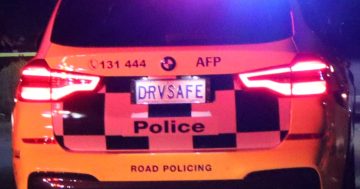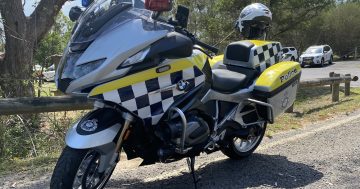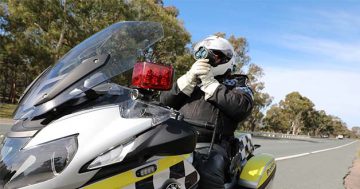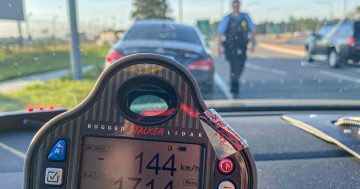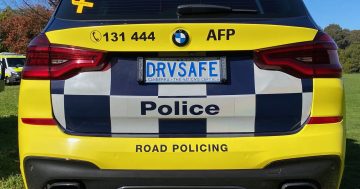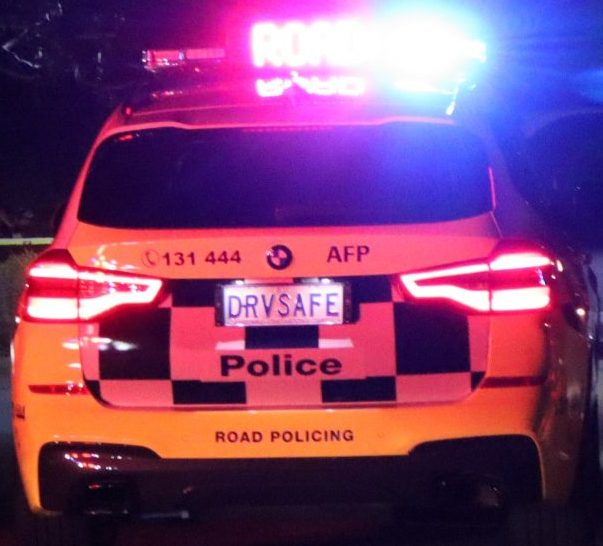
ACT police are urging the public to report dangerous driving. Photo: David Murtagh.
A dozen traffic infringement notices have been issued to six drivers from the ACT and NSW by ACT Policing just days after police warned they would target drivers who publicised their hooning on social media.
- Eight traffic infringement notices were issued for burnouts. Drivers face a $675 fine and the loss of three demerit points.
- Two traffic infringement notices were issued for driving unregistered vehicles. Drivers face a $675 fine.
- Two traffic infringement notices were issued for driving an uninsured vehicle. Drivers face a $903 fine.
Police patrolling Canberra’s roads are also targeting speeding as part of this month’s focus on dangerous driving.
At about 9:50 pm on Wednesday (5 April), police detected a white Mitsubishi Magna overtaking other vehicles while travelling southbound on the Majura Parkway at 146 km/h in the 100 km/h zone.
The driver, a 44-year-old man from Charnwood, was issued a traffic infringement notice for exceeding the speed limit by more than 45 km/h. He will be fined $1841 and accrue six demerit points. The man will lose his licence for three months.
Police also noticed the driver had a seven-year-old child in the vehicle and committed the offence on wet roads with poor lighting.
Earlier this week, ACT Road Policing Detective Acting Superintendent Donna Hofmeier urged the public to share information about dangerous driving with police.
“Please let police know about dangerous driving behaviour when you witness it. If you have dashcam footage, you can provide that to us to assist in building a picture of a driver’s behaviour,” she said.
“On a lot of occasions, we will be able to act on the video and there will be occasions when people may need to give us a statement and attend court. People may be reticent to do that, but the only way we’re going to stop this is through education and accountability, so that’s one of our tactics this month,” she said.
Police are urging the community to report dangerous driving, including hooning, burnouts, and drivers running red lights to Crime Stoppers on 1800 333 000, or via the Crime Stoppers ACT website.













